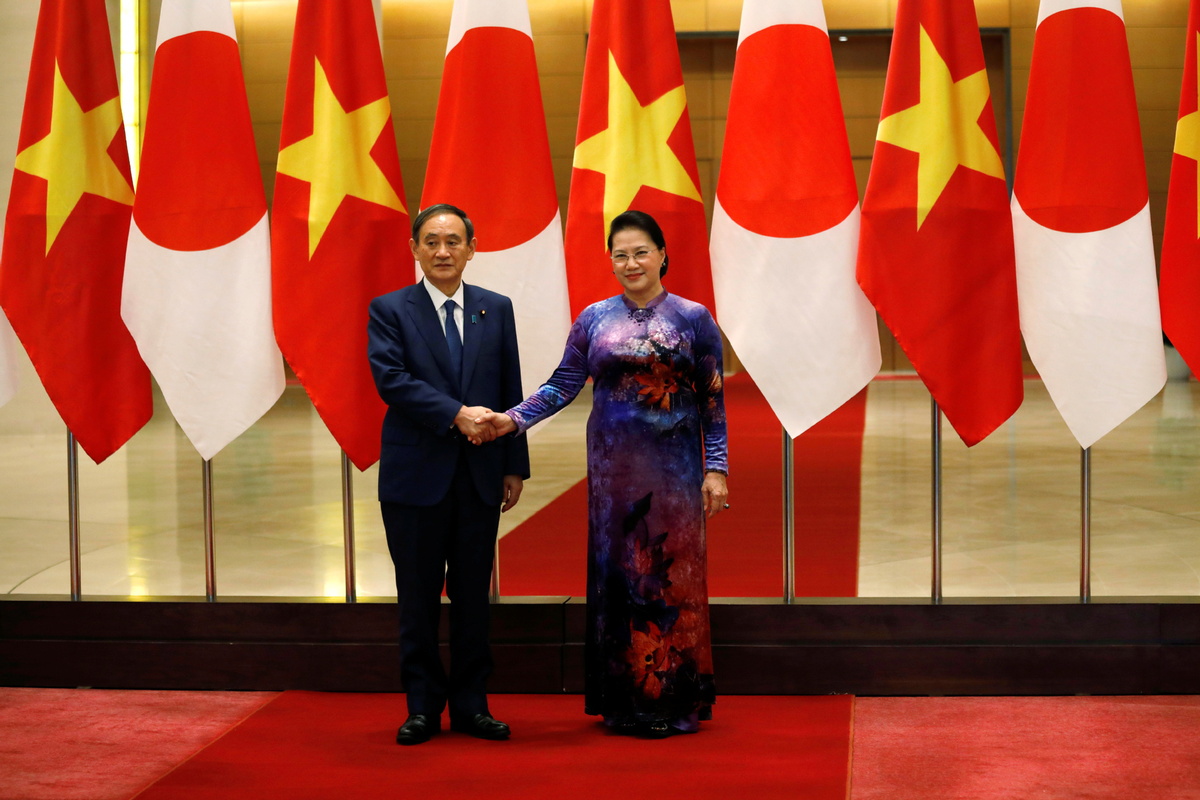Suga shows alliance still Japan's priority: China Daily editorial

Japanese Prime Minister Yoshihide Suga's ongoing visits to Vietnam and Indonesia have drawn attention, and for good reason.

It is Suga's first overseas trip after assuming office as Japanese leader. It is one of the first in-person visits by the leader of a major country in the Asia-Pacific, even worldwide, to foreign countries while international travel remains largely frozen due to the COVID-19 pandemic. And without a doubt, it mirrors the present Japanese cabinet's diplomatic priorities in the region.
Like his predecessor, Shinzo Abe, Suga broke the longstanding Japanese diplomatic precedent of a newly elected prime minister devoting his first overseas visit to the United States as a political gesture ascertaining the significance to the country of its key strategic alliance. But that in no way indicates the Suga cabinet attaches any less importance to the alliance. On the contrary, Suga made it very clear immediately after assuming office that, like the Abe administration, his foreign policies will continue to be based on and proceed from the Japan-US alliance. The destination of his first overseas visit may very likely have been different had it not been for the volatile pandemic situation in the US and Europe.
Choosing the two Southeast Asian countries certainly demonstrates stronger confidence in the better job the Asia-Pacific has done in containing the pandemic. But it also highlights the tremendous geopolitical emphasis Tokyo is placing on the Association of Southeast Asian Nations. With an abundant supply of young workers, rapid growth and huge consumer potential, Southeast Asia has become an area of great development potential.
Japanese and Southeast Asian economies are mutually complementary in many ways. For Japan, especially as it seeks to "diversify" and "secure" its industrial chains and supply lines, Southeast Asian, ASEAN member states in particular, where Japan's official development aid and various other aid programs have cultivated a favorable atmosphere for bilateral relations, are ideal options.
But since Suga told reporters before leaving Tokyo that Southeast Asian nations are "extremely important partners" for Japan's pursuit of a "free and open Indo-Pacific", it is perhaps more reasonable to read his current visits as a signal that the region has gained additional weight in Japanese foreign policies as Tokyo acts to add substance to the "Indo-Pacific" strategy of the US, in step with other US allies and partners.
And since such rhetoric is habitual whenever the US administration justifies its attempts to drive a wedge between China and ASEAN, Suga's visits, rather than signaling Japan's positive engagement with the region, likely portend it being a willing partner of the US' divisive endeavors.
Today's Top News
- China, France issue joint statements
- Xi, Macron have friendly exchanges in China's Chengdu
- Unity urged to advance Global South development
- Rule of law guards sound business environment
- Resilience of Sino-French economic ties hailed
- Xi, Macron vow to deepen relations






























